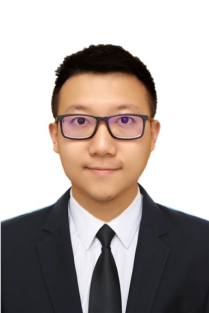-
概况
教育经历
2014年8月-2019年8月,美国弗吉尼亚理工大学,航空工程专业,博士
2010年9月-2014年5月,北京航空航天大学,航空工程专业,学士
工作经历
2022年7月-至今,清华大学深圳国际研究生院,助理教授
2019年11月-2022年5月,美国加州理工学院,博士后研究员
学术兼职
International Journal of Multiphase Flow, Physics of Fluids, Ultrasonics Sonochemistry, Acta Mechanica Sinica, International Journal for Numerical Methods in Fluids (IJNMF)、Journal of Fluids and Structures (JFS)、Aerospace、Mechanical Sciences等期刊审稿人
社会兼职
-
教学课程
高等数值分析(课号:60420024-203,国际院)
偏微分方程数值解法与编程(课号:85991022-200,国际院)
流固耦合方法与仿真(课号:85990872,国际院)
研究生指导
-
研究领域
课题组主要研究方向:
一、多相流固耦合问题的高保真建模与高性能仿真
1、构建成套高保真多相流固耦合模型,为涉及空泡/空泡群、激波、大变形固体结构、以及材料损伤与断裂等复杂非线性问题提供一体化耦合仿真工具;
2、开发兼顾精确性、计算效率、及可扩展性的耦合算法,解决多物理场耦合带来的高计算复杂度和算法收敛难题;
3、开发多模块多物理场并行仿真求解器,并在海洋工程、高强聚焦超声医疗等重点领域展开应用。
二、基于机器学习的流固耦合主动控制技术
1、发掘前沿机器学习技术,构建基于强化学习的流固耦合主动控制策略,并在仿生鱼游、海洋减阻、结构物减振等领域展开应用;
2、利用先进模态分解方法构建高精度流固耦合降阶模型,提高计算效率;
3、开发面向流固耦合问题的数据驱动模型。
三、水下爆炸与防护
1、构建水下外爆与内爆的多相流固耦合模型,研究爆炸气泡、冲击波与水下结构物相互作用机制;
2、研究气泡幕防护机理,优化气泡幕设计。
四、设计和开发高效的流固耦合反问题并行计算框架
为建立大型流固耦合数字孪生模型提供理论基础与技术保证。
主要项目
1.广东省自然资源厅,2024年省级海洋六大产业专项项目,粤自然资合[2024]48号,2024-2025,在研,骨干
2.清华大学深圳国际研究生院, 科研启动项目, 20235810039, 面向海洋工程的高性能多相流固耦合仿真, 2023-2025, 在研, 主持
3.清华大学深圳国际研究生院, 院交叉科研研究基金, 20225820238, 渗透势发电膜的材料研究及电动流 体仿真, 2023-2025, 在研, 主持
4. 深圳海油工程水下技术有限公司,横向项目,2024-2025,在研,骨干
-
代表性论文
[1] H.-K. Jiang, S.-X. Cao*. BPOD-based feedback control of vortex-induced vibration. Physical Review Fluids. 2024.
[2] X.-W. Pang, S.-X. Cao*. Optimization of fin arrangement in solar thermal storage devices and convolutional neural network modeling. International Communication of Heat and Mass Transfer. 2024.
[3] J.-J. Zhao, W.-J. Zhu, S.-X. Cao*. Dynamics of tandem bubble interaction near tissue. Physics of Fluids. 36(5). 2024.
[4] Y.-F. Gao, Z.-J. Zhang, X. Zhao, Y. Wang, L.-X. Sun, S.-X. Cao, Y. Lei, B.-H. Li, D. Zhou, F.-Y. Kang, “Island-bridge”-structured nanofluidic membranes for high-performance aqueous energy conversion and storage. Energy Materials and Devices. 2024.
[5] H.-K. Jiang, S.-X. Cao*. Reinforcement learning-based active flow control of oscillating cylinder for drag reduction. Physics of Fluids. 35(10). 2023.
[6] S.-X. Cao, Z. Huang. Bayesian calibration for large-scale fluid structure interaction problems under embedded/immersed boundary framework. International Journal for Numerical Methods in Engineering. 2022.
[7] S.-X. Cao, G.-Y. Wang, O. Coutier-Delgosha, K.G. Wang. Shock-Induced Bubble Collapse Near Solid Materials: Effect of Acoustic Impedance. Journal of Fluid Mechanics. 2020.
[8] S.-X. Cao, G.-Y. Wang, K.G. Wang. A Spatially Varying Robin Interface Condition for Fluid-Structure Coupled Simulations. International Journal for Numerical Methods in Engineering. 2020.
[9] S.-X. Cao, Y. Zhang, D. Liao, P. Zhong, K. G. Wang. Shock-induced damage and dynamic fracture in cylindrical bodies submerged in liquid. International Journal of Solids and Structures. 2019; 169, 55-71.
[10] S.-X. Cao, A. Main, K.G. Wang. Robin-Neumann transmission conditions for fluid-structure coupling: Embedded boundary implementation and parameter analysis. International Journal for Numerical Methods in Engineering. 2018;115(5):578–603.
[11] H. Chung, S.-X. Cao, M. Philen, P.S. Beran, K.G. Wang. CFD-CSD coupled analysis of underwater propulsion using a biomimetic fin-and-joint system. Computers & Fluids. 2018; 172(8): 54–66.
[12] M. Bailey, A. Maxwell, S.-X. Cao, S. Ramesh, Z. Liu, J. Williams Jr, J. Thiel, B. Dunmire, T. Colonius, E. Kuznetsova, W. Kreider, M. Sorensen, J. Lingeman, O. Sapozhnikov. Improving burst wave lithotripsy effectiveness for small stones and fragments by increasing frequency: theoretical modeling and ex vivo study. Journal of Endourology. 2022.
[13] G.-M. Xiang, X.-J. Ma, C. Liang, H.-Y Yu, D. Liao, G. Sankin, S.-X. Cao, K. Wang and P. Zhong. Variations of stress field and fracture pattern produced at different locations in a shock wave lithotripter field. The Journal of the Acoustical Society of America. 150, no. 2 (2021): 1013-1029.
代表性著作
主要专利成果
其他成果
-
荣誉奖项
USNCCM16 Conference Award, 2021
美国弗吉尼亚理工大学研究生奖学金, 2014
北京市优秀毕业生, 2014
新加坡科技工程奖学金, 2010-2013
搜索
关闭




